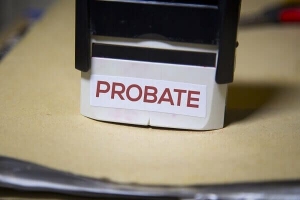
Under these circumstances:
- you may need to initiate probate proceedings in more than one jurisdiction;
- you may have to deal with the consequences of inconsistent probate laws in different jurisdictions (a will that is valid in one jurisdiction may not be valid in another, for example); and
- you may face challenging taxation issues.
A Note on “Legalese”
In case you look up any probate statutes or cases yourself, be aware that in “legalese”:
- “Foreign” means “out of state”: A ”foreign personal representative”, for example, can mean a personal representative appointed by a Georgia court.
- “Alien” means “non-U.S. citizen”: A “resident alien”, for example, is a non-U.S. citizen who resides in the U.S. (not a Martian who resides on Earth!).
- “Decedent” means the deceased person whose will is being probated.
For the reader’s convenience, the remainder of this post will express the foregoing terms in plain English.
What Happens If You Ignore Florida Probate
Assuming that the real estate in question is subject to probate at all (it doesn’t pass through a living trust, for example), you might be tempted to ignore Florida’s claim to jurisdiction once a court in your home jurisdiction completes the probate process. A problem will arise, however, when you try to transfer legal title of the property.
Without a Florida probate disposition of the property, it will still be recorded in land records as owned by the deceased. This will render the property’s title “defective,” and the property cannot be transferred until the defect in the title is cleared by a court. Defective title will significantly lower the market value of the property.
Non-Resident U.S. Citizens
Non-probate property
When property that passes outside of probate, the non-resident status of the beneficiary is generally irrelevant and doesn’t cause any particular problems.
Probated property
Complications are most likely to arise when a resident of another state dies owning real estate located in Florida. When this happens, four alternatives arise:
- Admission of the out-of-state will to the record: This option is available if (i) the deceased left a will (ii) the will was fully probated in the other state and (ii) the will was executed in a manner that complies with Florida law (even if the out-of-state law applies more lenient standards).
Admitting the will to the record in Florida requires the submission of an authenticated copy of the will from the out-of-state probate court to the probate court in the Florida county where the property is located. Certain documentary requirements apply, and the property can pass normally under the will.
- Ancillary probate proceeding: This option applies if the deceased did not leave a will. Florida can certify the appointment of a personal representative (executor) of the deceased’s estate, which will normally be the same person who represented the estate in the out-of-state probate proceeding. Florida will hold a full formal probate proceeding.
- Short form ancillary proceeding: This is in abbreviated proceedings for estates valued at no more than $50,000. The out-of-state personal representative files transcripts of the out-of-state probate proceedings with a local circuit court, and the property is disposed of on this basis without a full probate hearing.
- Summary Administration: Summary Administration can be used if the estate is worth less than $75,000 or if the deceased has been dead for more than two years. In a summary administration, there is a petitioner but no personal representative is appointed for the estate.
The main disadvantage of summary administration is that the petitioner lacks much of the legal authority that a personal representative enjoys and may have trouble locating estate assets among other issues. The main advantage is that it is quicker and easier than the normal probate process.
Non-U.S. Citizens
A non-U.S. citizen is anyone who was neither born in the United States nor naturalized under U.S. law. A non-U.S. citizen may be someone who resides abroad, someone who is in the U.S. temporarily, or someone with permanent residence in the United States (a “green card” holder).
When a non-U.S. citizen owning real estate in Florida dies, the property must be probated in Florida if the property itself is subject to Florida probate law. Depending on the laws of the foreign jurisdiction, a non-U.S. citizen’s will might need to be probated abroad as well. Nevertheless, Florida courts claim exclusive jurisdiction over real estate located in Florida.
Potential Complications:
There are many complications that may arise when a non-U.S. citizen dies owning property in Florida. Some of the most common are:
- Conflict of laws: Although a foreign jurisdiction cannot enforce any disposition of the status of Florida real estate, it might take such an award issued by a Florida court into account when determining the disposition of the deceased’s property located abroad.
- Double taxation: In the US, only the relatively wealthy are subject to estate taxes; the situation varies, however, in other countries. It is possible for both the US and a foreign country to assess taxes against the same property. When this happens, there is normally a bilateral tax treaty in place that will prevent double taxation if it is appropriately applied.
Estate Planning in Light of Non-Residency Issues
Careful estate planning is a must if you own real property in several different states or in more than one country. Appropriate estate planning can yield tremendous tax benefits – among many other benefits. Every case is different, however, and there is no “one size fits all” solution.
Contact the probate attorney at Beller Law, either online or by phone at (904) 288-4414, for a no-obligation consultation.We serve clients throughout Greater Jacksonville, including Northside, Westside, Southside, Arlington, the Jacksonville Beaches, and more.
